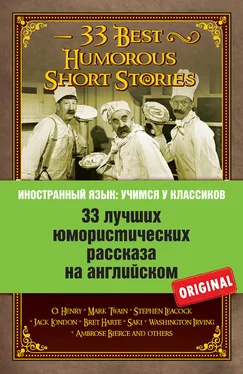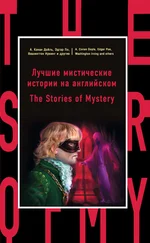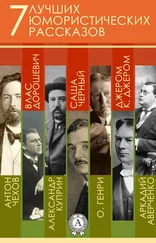He paused a moment. I began to realise something of the course of evolution that had happened.
‘So,’ I said, ‘the conquest of nature meant that presently there was no more work to do?’
‘Exactly,’ he said, ‘nothing left.’
‘Food enough for all?’
‘Too much,’ he answered.
‘Houses and clothes?’
‘All you like,’ said the Man in Asbestos, waving his hand. ‘There they are. Go out and take them. Of course, they’re falling down – slowly, very slowly. But they’ll last for centuries yet, nobody need bother.’
Then I realised, I think for the first time, just what work had meant in the old life, and how much of the texture of life itself had been bound up in the keen effort of it.
Presently my eyes looked upward: dangling at the top of a moss-grown building I saw what seemed to be the remains of telephone wires.
‘What became of all that,’ I said, ‘the telegraph and the telephone and all the system of communication?’
‘Ah,’ said the Man in Asbestos, ‘that was what a telephone meant, was it? I knew that it had been suppressed centuries ago. Just what was it for?’
‘Why,’ I said with enthusiasm, ‘by means of the telephone we could talk to anybody, call up anybody, and talk at any distance.’
‘And anybody could call you up at any time and talk?’ said the Man in Asbestos, with something like horror. ‘How awful! What a dreadful age yours was, to be sure. No, the telephone and all the rest of it, all the transportation and intercommunication was cut out and forbidden. There was no sense in it. You see,’ he added, ‘what you don’t realise is that people after your day became gradually more and more reasonable. Take the railroad, what good was that? It brought into every town a lot of people from every other town. Who wanted them? Nobody. When work stopped and commerce ended, and food was needless, and the weather killed, it was foolish to move about. So it was all terminated. Anyway,’ he said, with a quick look of apprehension and a change in his voice, ‘it was dangerous!’
‘So!’ I said. ‘Dangerous! You still have danger?’
‘Why, yes,’ he said, ‘there’s always the danger of getting broken.’
‘What do you mean,’ I asked.
‘Why,’ said the Man in Asbestos, ‘I suppose it’s what you would call being dead. Of course, in one sense there’s been no death for centuries past; we cut that out. Disease and death were simply a matter of germs. We found them one by one. I think that even in your day you had found one or two of the easier, the bigger ones?’
I nodded.
‘Yes, you had found diphtheria and typhoid and, if I am right, there were some outstanding, like scarlet fever and smallpox, that you called ultra-microscopic, and which you were still hunting for, and others that you didn’t even suspect. Well, we hunted them down one by one and destroyed them. Strange that it never occurred to any of you that Old Age was only a germ! It turned out to be quite a simple one, but it was so distributed in its action that you never even thought of it.’
‘And you mean to say,’ I ejaculated in amazement, looking at the Man in Asbestos, ‘that nowadays you live for ever?’
‘I wish,’ he said, ‘that you hadn’t that peculiar, excitable way of talking; you speak as if everything mattered so tremendously. Yes,’ he continued, ‘we live for ever, unless, of course, we get broken. That happens sometimes. I mean that we may fall over a high place or bump on something, and snap ourselves. You see, we’re just a little brittle still—some remnant, I suppose, of the Old Age germ – and we have to be careful. In fact,’ he continued, ‘I don’t mind saying that accidents of this sort were the most distressing feature of our civilisation till we took steps to cut out all accidents. We forbid all street cars, street traffic, aeroplanes, and so on. The risks of your time,’ he said, with a shiver of his asbestos clothes, ‘must have been awful.’
‘They were,’ I answered, with a new kind of pride in my generation that I had never felt before, ‘but we thought it part of the duty of brave people to —’
‘Yes, yes,’ said the Man in Asbestos impatiently, ‘please don’t get excited. I know what you mean. It was quite irrational.’
We sat silent for a long time. I looked about me at the crumbling buildings, the monotone, unchanging sky, and the dreary, empty street. Here, then, was the fruit of the Conquest, here was the elimination of work, the end of hunger and of cold, the cessation of the hard struggle, the downfall of change and death – nay, the very millennium of happiness. And yet, somehow, there seemed something wrong with it all. I pondered, then I put two or three rapid questions, hardly waiting to reflect upon the answers.
‘Is there any war now?’
‘Done with centuries ago. They took to settling international disputes with a slot machine. After that all foreign dealings were given up. Why have them? Everybody thinks foreigners awful.’
‘Are there any newspapers now?’
‘Newspapers! What on earth would we want them for? If we should need them at any time there are thousands of old ones piled up. But what is in them, anyway; only things that happen , wars and accidents and work and death. When these went newspapers went too. Listen,’ continued the Man in Asbestos, ‘you seem to have been something of a social reformer, and yet you don’t understand the new life at all. You don’t understand how completely all our burdens have disappeared. Look at it this way. How used your people to spend all the early part of their lives?’
‘Why,’ I said, ‘our first fifteen years or so were spent in getting education.’
‘Exactly,’ he answered; ‘now notice how we improved on all that. Education in our day is done by surgery. Strange that in your time nobody realised that education was simply a surgical operation. You hadn’t the sense to see that what you really did was to slowly remodel, curve and convolute the inside of the brain by a long and painful mental operation. Everything learned was reproduced in a physical difference to the brain. You knew that, but you didn’t see the full consequences. Then came the invention of surgical education – the simple system of opening the side of the skull and engrafting into it a piece of prepared brain. At first, of course, they had to use, I suppose, the brains of dead people, and that was ghastly’ – here the Man in Asbestos shuddered like a leaf—’but very soon they found how to make moulds that did just as well. After that it was a mere nothing; an operation of a few minutes would suffice to let in poetry or foreign languages or history or anything else that one cared to have. Here, for instance,’ he added, pushing back the hair at the side of his head and showing a scar beneath it, ‘is the mark where I had my spherical trigonometry let in. That was, I admit, rather painful, but other things, such as English poetry or history, can be inserted absolutely without the least suffering. When I think of your painful, barbarous methods of education through the ear, I shudder at it. Oddly enough, we have found lately that for a great many things there is no need to use the head. We lodge them – things like philosophy and metaphysics, and so on – in what used to be the digestive apparatus. They fill it admirably.’
He paused a moment. Then went on:
‘Well, then, to continue, what used to occupy your time and effort after your education?’
‘Why,’ I said, ‘one had, of course, to work, and then, to tell the truth, a great part of one’s time and feeling was devoted toward the other sex, towards falling in love and finding some woman to share one’s life.’
‘Ah,’ said the Man in Asbestos, with real interest. ‘I’ve heard about your arrangements with the women, but never quite understood them. Tell me; you say you selected some woman?’
Читать дальше
Конец ознакомительного отрывка
Купить книгу












